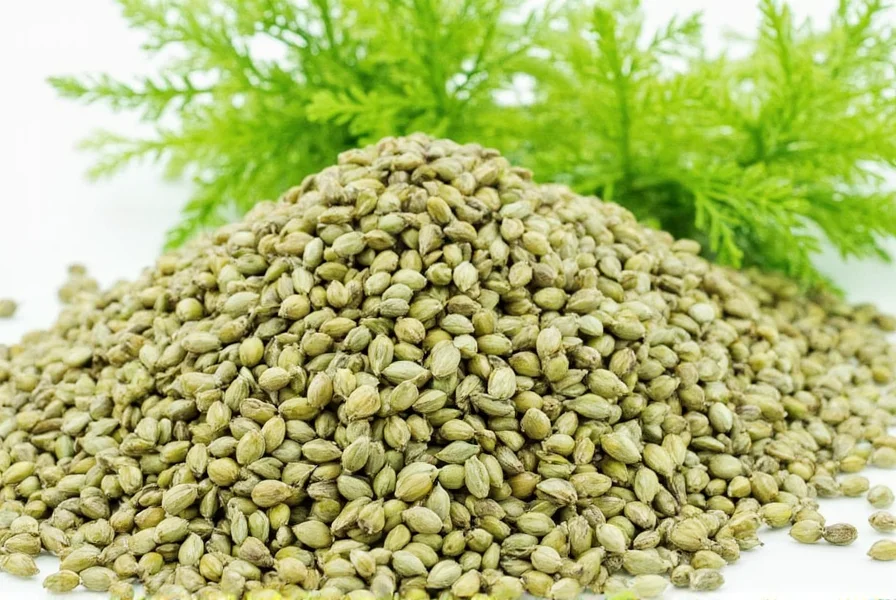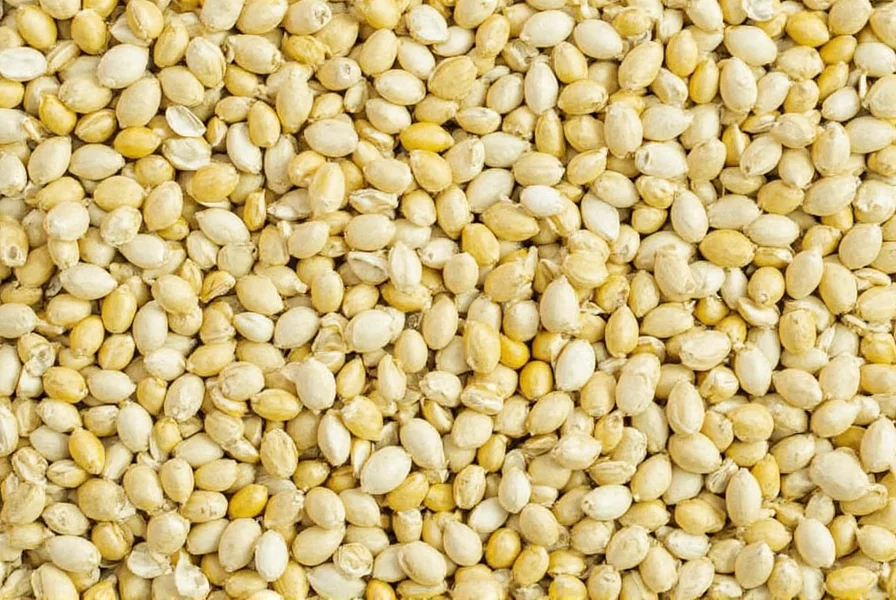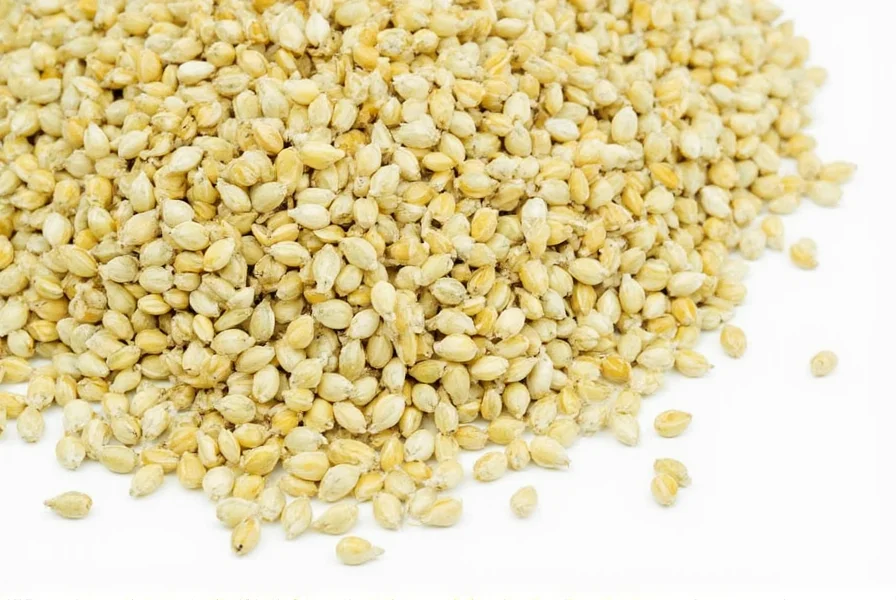Fennel seed has been valued across cultures for centuries, not just as a culinary spice but as a therapeutic herb with scientifically supported health applications. This small, aromatic seed packs a powerful nutritional profile including fiber, potassium, manganese, and beneficial plant compounds like anethole and flavonoids. Understanding both the evidence-based benefits and appropriate usage is essential for maximizing its potential while avoiding potential risks.
Nutritional Composition of Fennel Seed
Fennel seeds contain a remarkable concentration of beneficial compounds that contribute to their health properties. A single tablespoon (6g) provides approximately:
| Nutrient | Amount per Tablespoon | % Daily Value |
|---|---|---|
| Calories | 35 | 2% |
| Fiber | 2.3g | 8% |
| Protein | 1.1g | 2% |
| Potassium | 113mg | 3% |
| Manganese | 0.2mg | 9% |
| Calcium | 32mg | 3% |
Beyond basic nutrients, fennel seed contains significant amounts of phytochemicals including anethole (60-70% of essential oil content), estragole, fenchone, and various flavonoids. These compounds are responsible for many of the health benefits of fennel seed, particularly its digestive and anti-inflammatory properties.
Scientifically Supported Health Benefits
Modern research has validated many traditional uses of fennel seed, particularly regarding digestive health. A 2020 systematic review published in Phytotherapy Research analyzed multiple clinical trials and found that fennel seed extract significantly reduced symptoms of irritable bowel syndrome (IBS), including abdominal pain and bloating.
One of the most well-documented applications is how to use fennel seed for digestion. The seeds contain compounds that relax gastrointestinal tract muscles, explaining why fennel tea has been traditionally used after meals. A double-blind study in the Journal of Alternative and Complementary Medicine demonstrated that infants with colic showed significant improvement when given fennel seed extract compared to placebo.
The fennel seed antioxidant properties are equally impressive. Research in the Journal of Food Science identified fennel seeds as having higher antioxidant capacity than many common spices, helping combat oxidative stress that contributes to chronic diseases. These antioxidant effects may explain fennel seed's traditional use in supporting liver health.

Traditional Uses vs. Scientific Evidence
While traditional medicine systems have used fennel seed for centuries to address various conditions, modern science provides a more nuanced understanding of its actual efficacy.
For breastfeeding mothers, fennel seed has been traditionally used as a galactagogue to increase milk production. While some small studies suggest potential benefits, the American Academy of Pediatrics notes that evidence remains limited and more rigorous research is needed before making definitive recommendations about fennel seed for breastfeeding mothers.
Similarly, while fennel seed has been used traditionally for respiratory conditions, scientific evidence supporting this application is less robust than for digestive benefits. Current research focuses primarily on its anti-inflammatory and antimicrobial properties that may indirectly support respiratory health.
Practical Applications and Usage Guidelines
Understanding how to use fennel seed properly maximizes benefits while minimizing potential risks. The most common applications include:
- Fennel seed tea: Steep 1-2 teaspoons of crushed seeds in hot water for 10 minutes. This preparation delivers the fennel seed tea benefits for digestion and relaxation.
- Culinary use: Add whole or ground seeds to breads, sauces, and vegetable dishes for flavor and nutritional enhancement.
- Essential oil: Use diluted fennel oil topically for abdominal massage to relieve bloating (never ingest essential oils without professional guidance).
For digestive support, consuming fennel seed after meals as a tea or chewed directly provides the most immediate benefits. The recommended daily amount for general digestive support is 1-2 teaspoons of seeds or one cup of tea.
Safety Considerations and Potential Side Effects
While generally recognized as safe by the FDA when used in culinary amounts, fennel seed can cause adverse effects in certain situations. Understanding fennel seed side effects is crucial for safe usage.
Potential concerns include:
- Photosensitivity: Fennel contains compounds that may increase skin sensitivity to sunlight
- Hormonal effects: Due to phytoestrogen content, those with hormone-sensitive conditions should use caution
- Allergic reactions: Possible in individuals sensitive to plants in the Apiaceae family
- Essential oil toxicity: Pure fennel oil can be toxic if ingested improperly
Pregnant women should avoid medicinal amounts of fennel seed, as high doses may stimulate uterine contractions. Individuals taking certain medications, particularly those metabolized by cytochrome P450 enzymes, should consult with a healthcare provider before using fennel seed medicinally.

Selecting and Storing Fennel Seed
To maximize the fennel seed nutritional value in your diet, proper selection and storage are essential. Choose seeds that are greenish-brown rather than yellowed, with a sweet, anise-like aroma. Whole seeds retain their potency longer than ground fennel.
Store fennel seeds in an airtight container away from light and heat. Properly stored, they maintain optimal flavor and nutritional content for 1-2 years. For extended storage, keep them in the refrigerator or freezer to preserve volatile oils that provide many health benefits.
Fennel Seed Compared to Similar Herbs
Many people confuse fennel seed with similar-looking spices. Understanding the differences between fennel seed vs anise seed is important:
- Fennel seed: Larger, greener, milder flavor, from Foeniculum vulgare plant
- Anise seed: Smaller, grayish, stronger licorice flavor, from Pimpinella anisum plant
- Star anise: Distinct star shape, stronger flavor, from Illicium verum plant
While all contain anethole (providing the characteristic licorice flavor), they differ in additional compounds and specific health properties. Fennel seed generally offers broader digestive benefits compared to anise seed, while star anise contains shikimic acid used in some antiviral medications.
Conclusion
Fennel seed represents a remarkable example of a culinary spice with genuine therapeutic potential. The growing body of research supporting health benefits of fennel seed validates many traditional uses, particularly for digestive health. When used appropriately and with awareness of potential limitations, fennel seed can be a valuable addition to a health-conscious diet. As with any natural remedy, understanding both the evidence-based benefits and appropriate usage guidelines ensures safe and effective incorporation into daily wellness practices.
Frequently Asked Questions
What are the primary health benefits of fennel seed?
The primary evidence-based health benefits of fennel seed include improved digestion, reduced bloating and gas, anti-inflammatory effects, and antioxidant protection. Research particularly supports its effectiveness for relieving symptoms of irritable bowel syndrome and infant colic. Fennel seed also contains compounds that may help regulate blood pressure and support liver function.
How much fennel seed should I consume daily for digestive benefits?
For digestive benefits, most studies and traditional practices recommend 1-2 teaspoons of whole fennel seeds daily, either chewed directly after meals or prepared as tea. To make fennel tea, steep 1-2 teaspoons of crushed seeds in 8 ounces of hot water for 10 minutes. Consuming fennel seed in culinary amounts as part of regular cooking is also beneficial and safe for most people.
Can fennel seed interact with medications?
Yes, fennel seed may interact with certain medications. The compounds in fennel can affect how the body metabolizes drugs processed by the cytochrome P450 enzyme system, potentially altering the effectiveness of medications including blood thinners, anticonvulsants, and some cancer treatments. Fennel's potential estrogen-like effects may also interact with hormone therapies. If you take prescription medications, consult your healthcare provider before using fennel seed medicinally.
Is fennel seed safe during pregnancy?
Fennel seed is generally considered safe in culinary amounts during pregnancy, but medicinal quantities should be avoided. Some compounds in fennel may stimulate uterine contractions at high doses. The American Pregnancy Association recommends pregnant women limit fennel to occasional culinary use and avoid fennel tea or supplements without medical supervision. Always consult your healthcare provider about herb use during pregnancy.
How does fennel seed compare to anise seed for digestive issues?
While both fennel seed and anise seed contain anethole (providing similar flavor profiles), fennel seed generally offers broader digestive benefits. Fennel seed has been more extensively studied for digestive applications, particularly for relieving bloating, gas, and symptoms of irritable bowel syndrome. Fennel seed also contains additional compounds like flavonoids that contribute to its anti-inflammatory effects. Anise seed tends to have a stronger flavor and is often used more for respiratory support than digestive issues.











 浙公网安备
33010002000092号
浙公网安备
33010002000092号 浙B2-20120091-4
浙B2-20120091-4